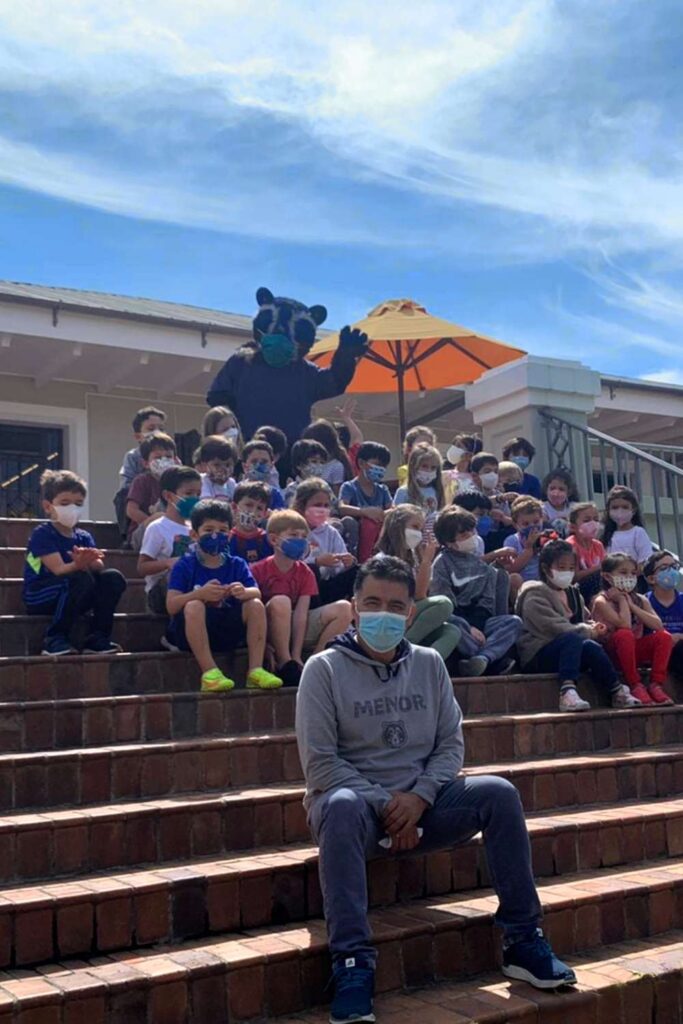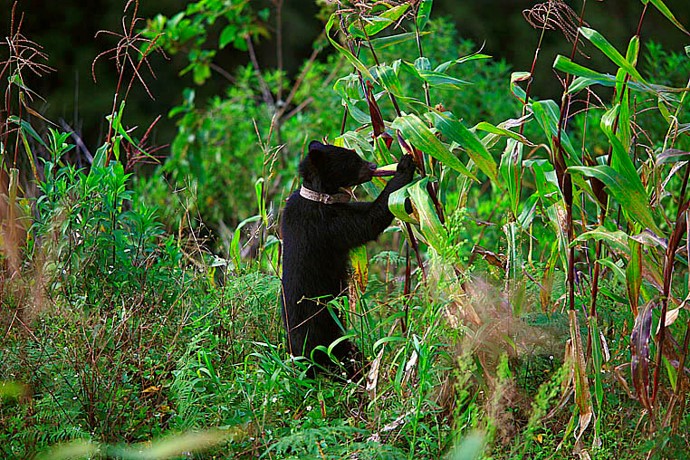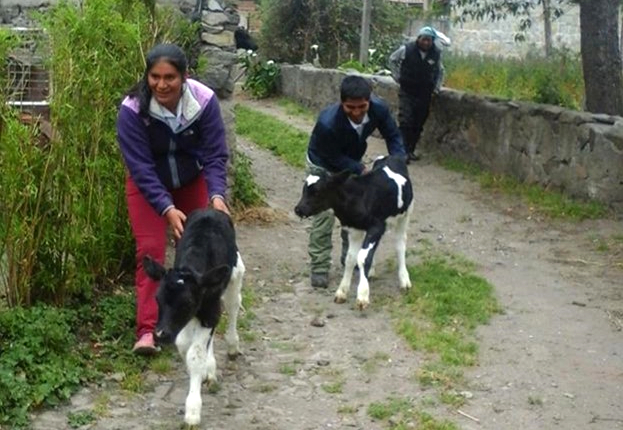

Una de las mayores causas de los conflictos entre los osos y los campesinos en el Ecuador es la tendencia de los osos a comer maíz. En muchas de las regiones donde viven los osos, existen comunidades de numerosas familias en extrema pobreza, en este tipo de condición no pueden permitirse el lujo de perder su única fuente de ingresos y alimento. Las cercas eléctricas se han sugerido como una posible solución a esta forma particular del conflicto oso-humano, pero esto no resolvería el problema, simplemente lo trasladaría a otro lugar o hacia los agricultores que no pueden pagar por esas cercas eléctricas.
Cuando un oso incursiona un maizal en nuestra área de estudio, nosotros investigamos el sitio y encontramos una cantidad considerable de maíz consumido, pagamos una pequeña compensación al agricultor. Esto ha disminuido la mala actitud hacia los osos y estos ya no han sido cazados. Sin embargo, nuestra área de estudio es sólo una pequeña parte de Ecuador y no podemos compensar a todos los agricultores en toda el área de distribución del oso. Nuestra investigación está orientada hacia una mayor comprensión acerca de cómo los osos usan su hábitat. Con esta información, esperamos desarrollar un plan de ordenamiento territorial, y sugerir a los agricultores una manera de cómo reducir al mínimo el riesgo de tener osos comiendo en su maizal.




